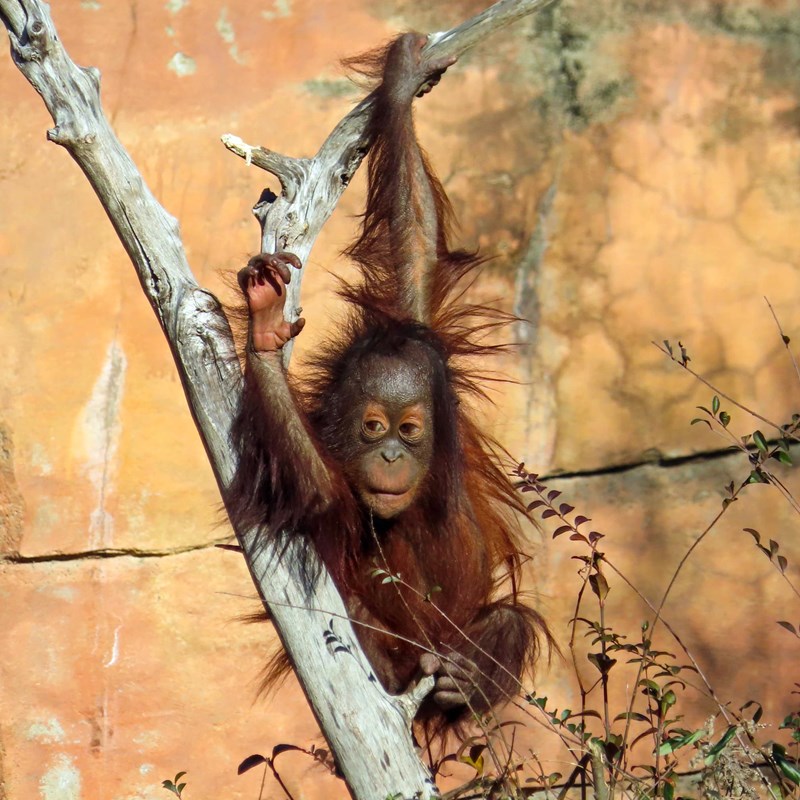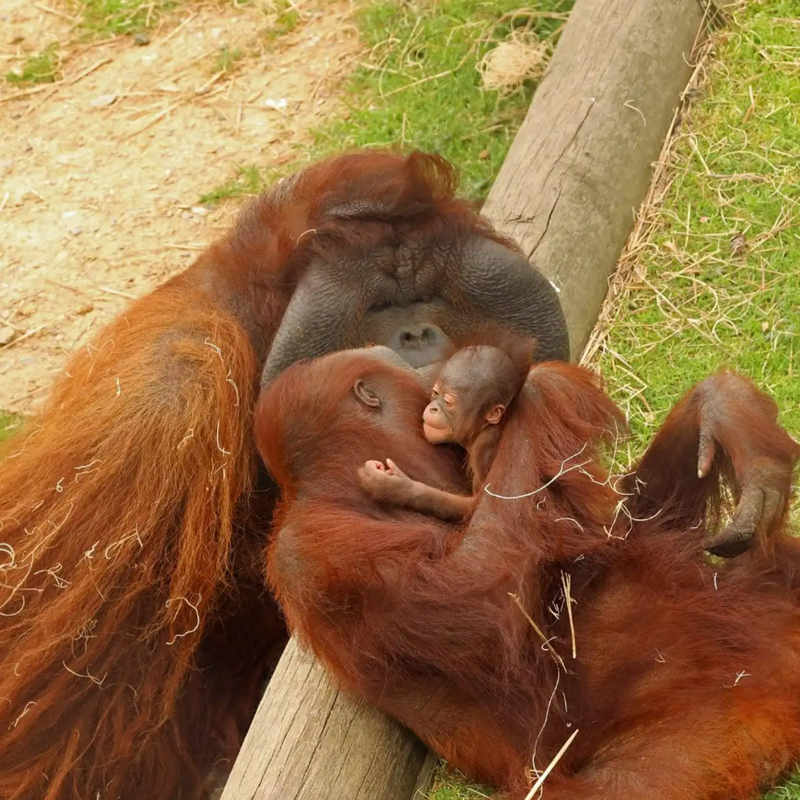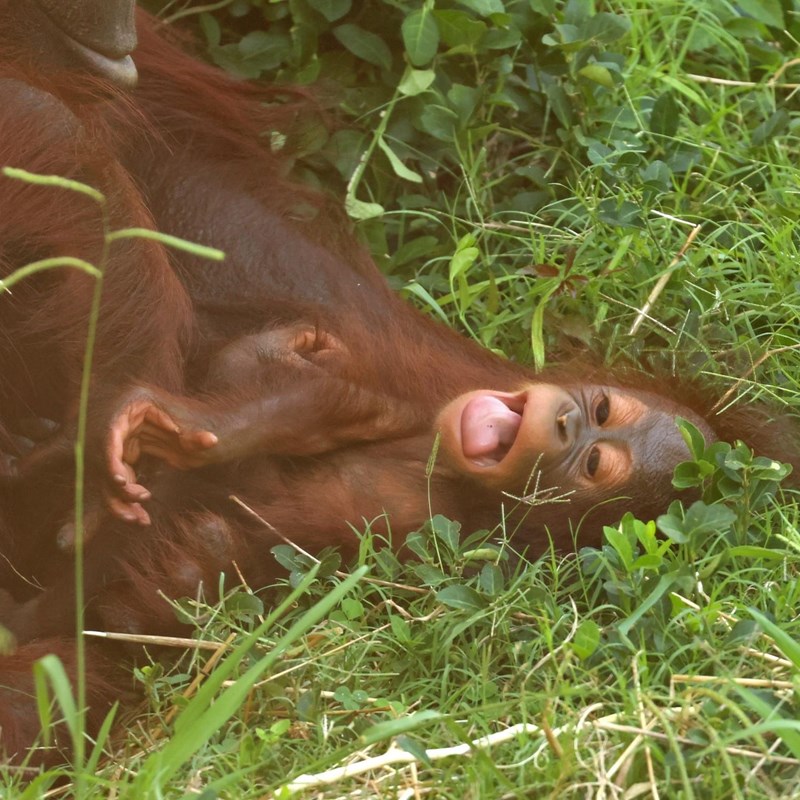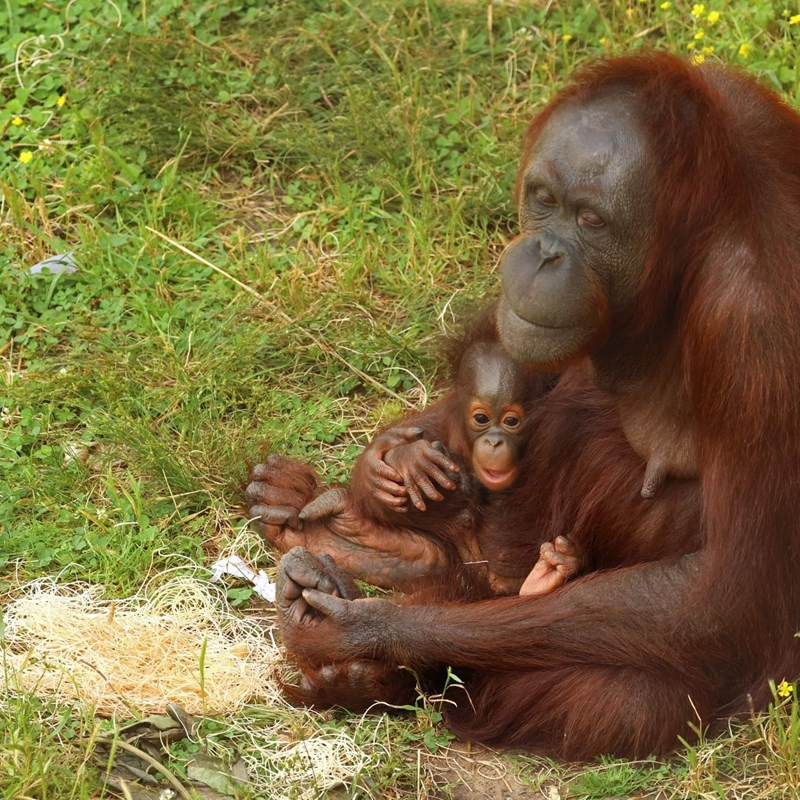Great Apes
Great apes, including gorillas, chimpanzees, orangutans, and bonobos, are our closest living relatives in the animal kingdom. These highly intelligent and social primates share many characteristics with humans, including complex emotions, problem-solving abilities, and the capacity for communication. Unfortunately, great apes face numerous threats in the wild, including habitat loss, poaching, and disease.
CRITICALLY ENDANGERED
Western Lowland Gorilla
The Western Lowland Gorilla, is a magnificent and critically endangered primate species native to the rainforests of central Africa. They’re characterized by their powerful build, imposing presence, and distinctive black fur. Western Lowland Gorillas are highly intelligent and social animals, living in close-knit family groups led by a dominant silverback male. Unfortunately, habitat loss, poaching, and disease pose significant threats to the survival of Western Lowland Gorillas in the wild.
At the Little Rock Zoo, we are privileged to house a small troop of Western lowland gorillas, led by silverback Kivu. Kivu joined our zoo family in 2016, arriving from the Santa Barbara Zoo at the age of 24. In 2018, Kivu became a father to a baby gorilla named Bukavu, with the mother named Sekani. In 2022, based on recommendations from the Western Lowland Gorilla Species Survival Plan, Sekani and Bukavu were transferred to the Fort Worth Zoo.
In March 2025, Kivu fathered another baby gorilla in a milestone birth for the Zoo—Adelina, born here in 2012, became the first gorilla born at the Little Rock Zoo to later give birth at our facility.
On your next visit, you may notice Alice, who joined us from another accredited zoo in 2022. She has a recurring skin condition, but thanks to dedicated veterinary care, her health has improved. While the patch on her left side may sometimes appear red and inflamed, Alice continues to thrive alongside her companions. Her condition is closely monitored by her keepers and veterinary staff, and Arkansas’s humid climate has even proven beneficial for her skin. Though her appearance may raise concern, rest assured that Alice receives the highest standard of care, ensuring her well-being. At the Little Rock Zoo, we are committed to providing exceptional care for all our animal residents.
- Largest living primates (a group that includes monkeys, apes, and humans).
- Despite their formidable size, gorillas are gentle animals.
- The western lowland gorilla is not the gorilla featured in the book and movie Gorillas in the Mist. That’s the mountain gorilla (one of the subspecies of eastern gorilla).
- Western lowland gorillas eat parts of at least 97 plant species.
Western Lowland Gorillas face significant conservation challenges due to habitat loss, poaching, and disease throughout their range in central Africa. Deforestation, mining, and agricultural expansion continue to destroy their natural habitats, making it increasingly difficult for gorilla populations to thrive. Additionally, gorillas are hunted for bushmeat and captured for the illegal pet trade, further threatening their survival. Conservation efforts aimed at protecting Western Lowland Gorillas include habitat preservation, anti-poaching patrols, community education, and the enforcement of wildlife protection laws. The Little Rock Zoo supports these conservation initiatives by raising awareness about gorilla conservation challenges and actively participating in programs that contribute to their protection and survival in the wild. Please join our efforts to secure a future for this species by donating to our conservation fund.
Gorillas on the Line- How Your Old Tech Can Help Gorillas in the Wild
The Little Rock Zoo is a proud supporter of Gorillas on the Line, a campaign run by the AZA Gorilla SAFE to recycle old cell phones and tablets to benefit wild gorillas. Drop them off at our new dropbox in the front entry plaza and contribute to wild gorilla conservation at the same time.
Tickets are not required to drop off devices. Devices will be collected all year long!
Why are we collecting cell phones for gorillas?
Many handheld electronics are made with coltan, which is mined in wild gorilla habitat. So, recycling old phones helps to decrease the need for new mining. At the same time, recycling raises money to directly support gorilla conservation initiatives through Gorilla SAFE programs. All proceeds from donated devices sent to Eco-Cell will be sent to the Gorilla SAFE program. Money raised will help with habitat protection, monitoring, education about gorilla conservation and more! Gorillas are on the line. Join us to answer the call and help save gorillas in the wild!
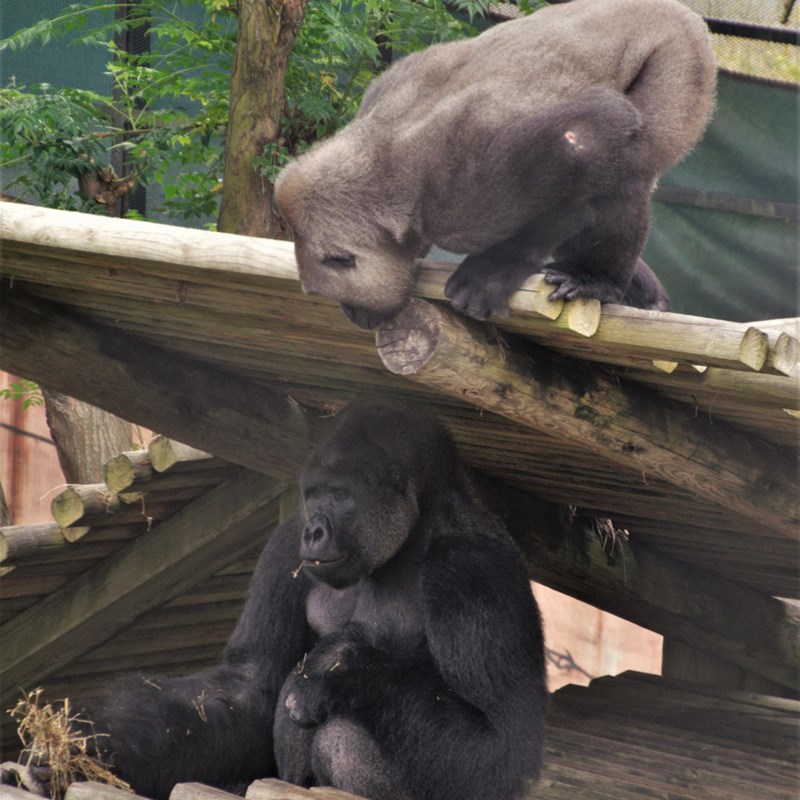
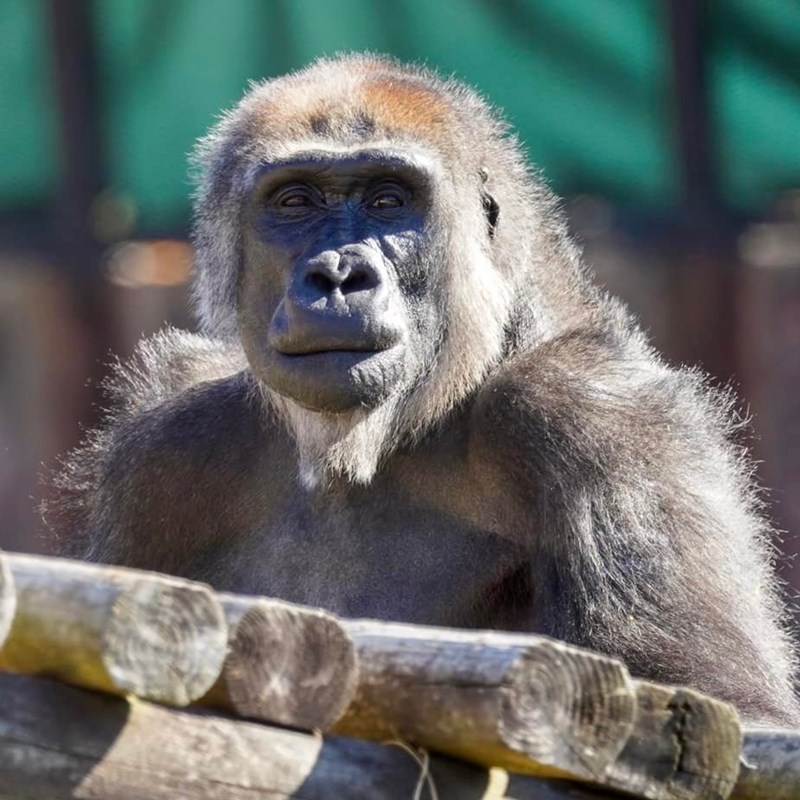
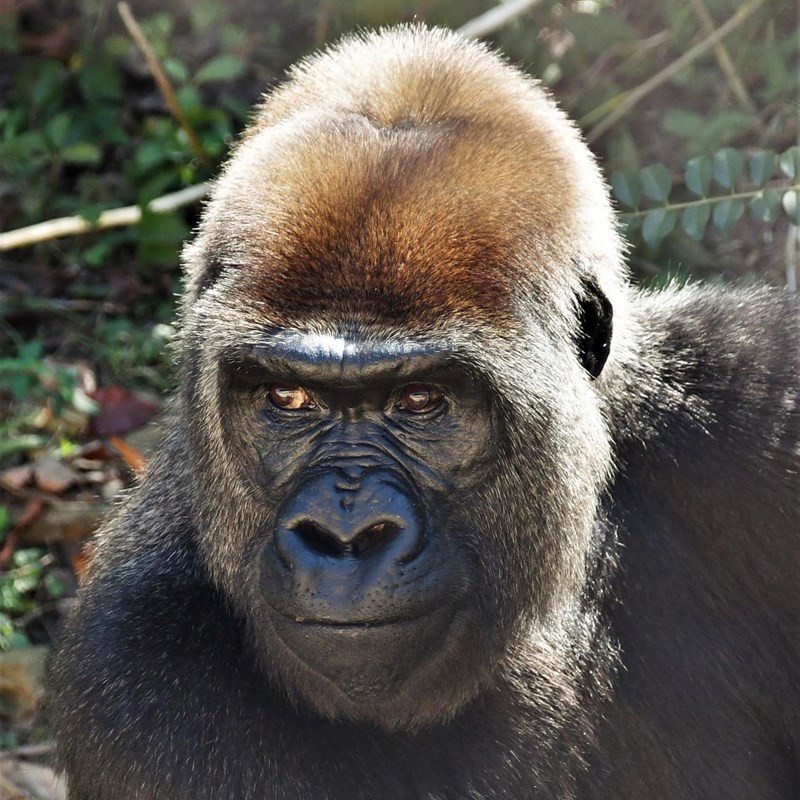
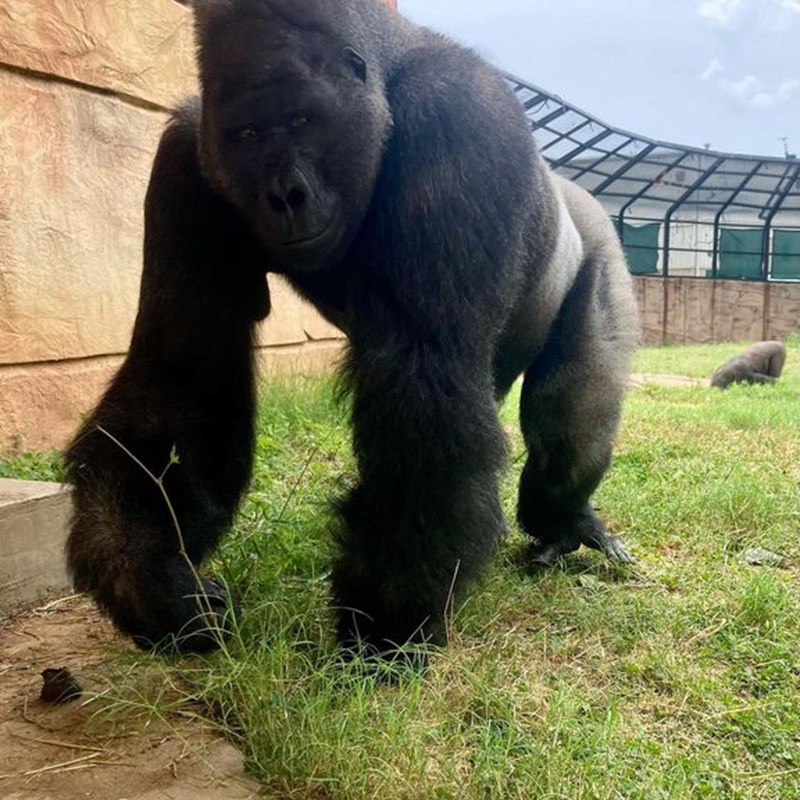
CRITICALLY ENDANGERED
Western Chimpanzee
The Western Chimpanzee, is a remarkable primate species native to West Africa. These highly intelligent and social animals are our closest living relatives in the animal kingdom, sharing over 98% of our DNA. Western Chimpanzees inhabit a variety of habitats, including tropical rainforests, woodlands, and savannas, where they live in complex societies led by dominant males. Unfortunately, Western Chimpanzees face numerous threats, including habitat loss, poaching, and disease. Conservation efforts aimed at protecting Western Chimpanzees include habitat preservation, anti-poaching patrols, community education, and the enforcement of wildlife protection laws.
The Little Rock Zoo is home to a multigenerational troop of seven chimpanzees. Our oldest chimpanzee, Judy, was born in 1970 and has lived at the Little Rock Zoo since 1988. The troop’s dominant male, Chance, serves as the leader, he helps to maintain order in the group, stepping in to break up conflicts when they arise. The youngest members of the group, Kendi and Jumoke are half-brothers, and Judy’s grandsons, they are often quite playful together.
Our troop lives in a fission-fusion dynamic, which is a flexible social structure, meaning they break into smaller groups of varying sizes, with different individuals joining each time.
- The chimpanzee shares more than 98 percent of the same genetic material with humans, making it our closest living relative.
- The chimpanzee is one of the few animal species that makes and uses tools. Examples include using sticks to catch insects and stones to crack open nuts.
- Chimpanzees live in large groups called communities.
- Apes, including chimpanzees, have color vision.
- A chimpanzee’s arm span is 1.5 times that of their height which aids in knuckle-walking and climbing.
Chimpanzees are an endangered species. Only about 150,000 chimpanzees’ survive in African forests today, down from one to two million in 1900. They are endangered for many reasons, including poaching, habitat loss, and disease introduced by humans. Much of their habitat has been lost to deforestation in response to logging, creation of farmland, and other human encroachment. Probably the greatest threat to chimpanzees today, though, is overhunting.
Chimpanzees are one of the species most severely imperiled by the illegal commercial bushmeat trade. In Africa, forest is called “bush.” The flesh of wild animals taken from forest is called “bushmeat.” The sale of bushmeat for profit, now occurring on an international scale, poses the most significant immediate threat to wildlife in Africa and around the world. Logging and mining companies have cut roads deep into the forests, making it easier for commercial hunters to get in, camp, hunt, get out, and take bushmeat to market.
Bushmeat is sold not only in local African villages but internationally, including here in the United States. Many consumers consider it a delicacy. So long as there is demand for bushmeat – and without practical economic alternatives – hunters will supply it.
The Little Rock Zoo participates in the Species Survival Plan® (SSP) for chimpanzees. This is a cooperative breeding program, serving 34 zoos working together to ensure the survival of the species. Although our primary role is in population management, we are ultimately interested in the health and wellbeing of ALL chimpanzees, including those living outside accredited zoos and in the wild. The Chimpanzee SSP is administered under the Ape Taxon Advisory Group (TAG).
What can you do to help chimpanzees?
You can help us bring species like chimpanzees back from the brink by supporting the Little Rock Zoo. Together we can save and protect wildlife around the globe. Please join our efforts to secure a future for this species by donating to our conservation fund.
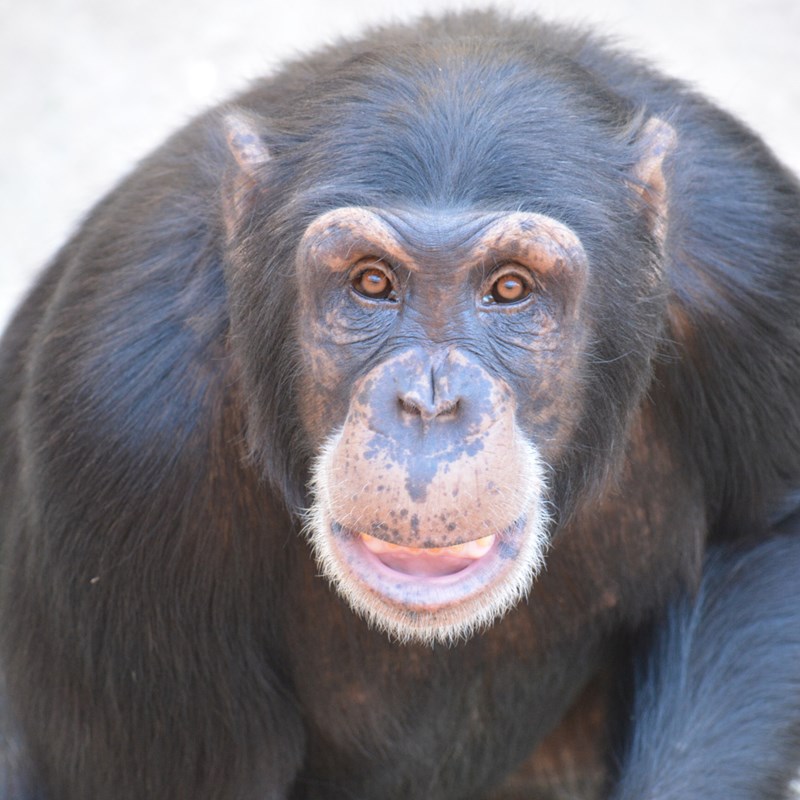
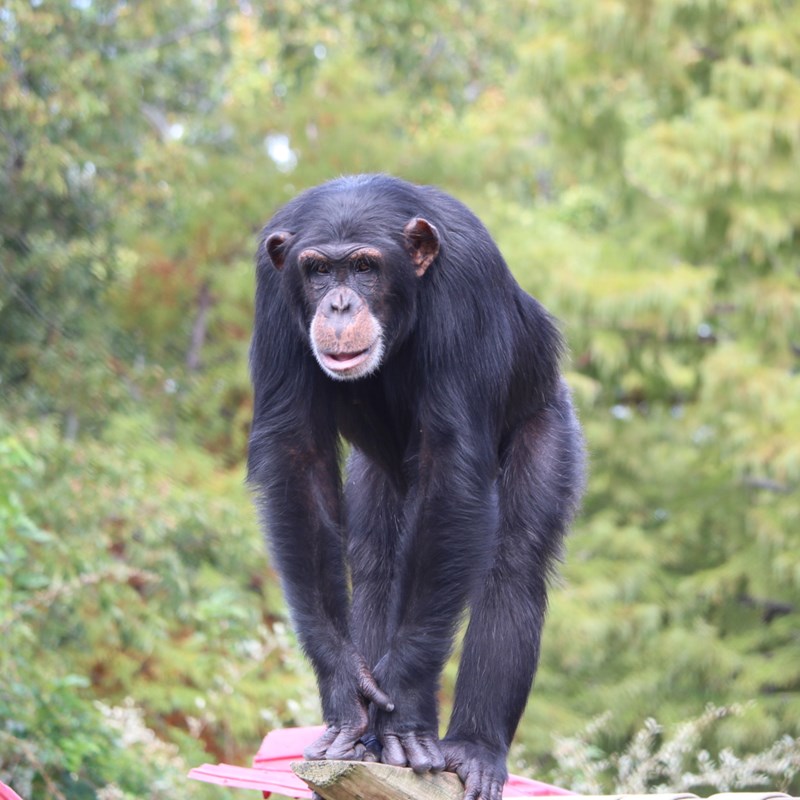
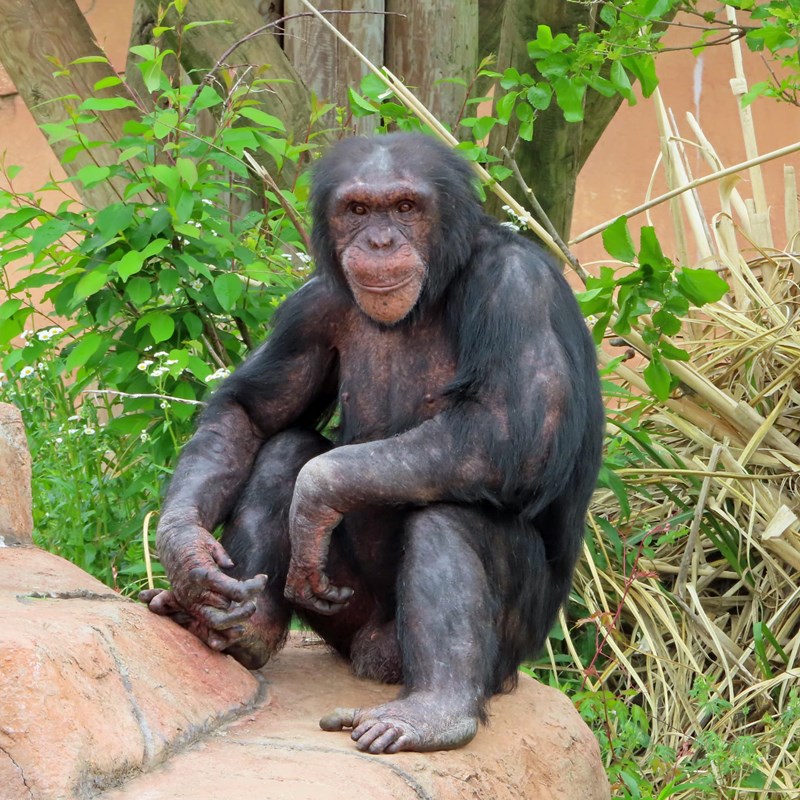
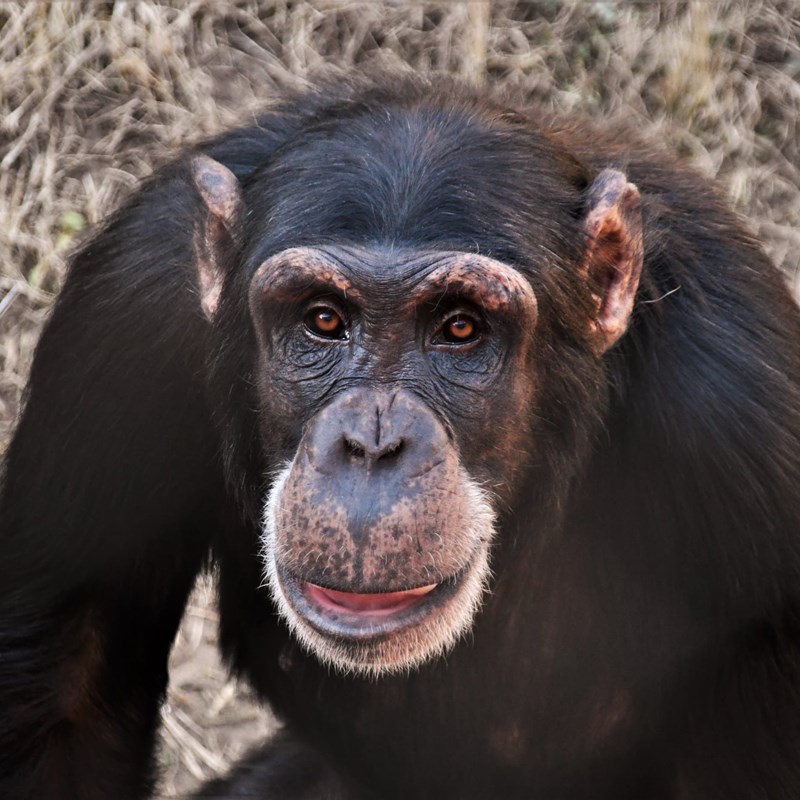
CRITICALLY ENDANGERED
Northwest Bornean Orangutan
The Bornean Orangutan, is an iconic primate species native to the rainforests of Borneo, Southeast Asia. Known for their distinctive reddish-brown fur and intelligent eyes, Bornean Orangutans are highly intelligent and arboreal, spending much of their lives in the trees. Unfortunately, Bornean Orangutans face numerous threats, including habitat loss, illegal logging, and poaching. Conservation efforts aimed at protecting Bornean Orangutans include habitat preservation, reforestation projects, and the enforcement of wildlife protection laws.
At the Little Rock Zoo, we’re proud to care for a pair of Bornean orangutans along with their offspring. Our male orangutan, Bandar, weighing 315 pounds, arrived from the Henry Doorly Zoo in Omaha, Nebraska, in August 2014. Our female, Berani, joined him in January 2017 from the Los Angeles Zoo as part of the Association of Zoos and Aquariums Species Survival Plan, ensuring the health and genetic diversity of captive orangutans. Visitors can often spot the pair outdoors throughout the year when temperatures are above 40 degrees Fahrenheit, but on cooler days or during storms, they enjoy snuggling indoors with their favorite blankets and fresh straw beds. Despite her smaller size, the female leads the pair, and they’re often seen cuddling together for naps in the sun. Their family expanded in July 2019 with the birth of their first baby, a female named Kasih, and in February 2024, Berani gave birth to a baby boy, affectionately named Kota after Kota Kinabalu in Malaysia, the native habitat of Bornean orangutans.
- Orangutans are the largest tree-living mammals in the world.
- Except for humans, orangutans have the longest childhood of any animal in the world.
- In the Malay language, the name “orangutan” means “person of the forest”.
- Orangutans have the most mobile lips and mouths of all the great apes; they are capable of many facial expressions.
- The Bornean orangutan was upgraded from endangered to critically endanger by International Union for Conservation in July 2016.
- There are two different types of adult male orangutan: flanged and unflanged. Flanged males have prominent cheek pads called flanges and a throat sac used to make loud verbalizations called ‘long calls’. They also have a long coat of dark hair on their back.
- Northwest Bornean Orangutan is the most threatened subspecies with only 1,500 remaining. They are spread in Sarawak (Malaysia) and the northern West Kalimantan region (Indonesia).
Northwest Bornean Orangutan (Pongo pygmaeus pygmaeus) is the most threatened subspecies with only 1,500 remaining. The risk of extinction for the critically endangered Bornean orangutan is very high. Their population levels have dropped more than 50 percent over the past 60 years, and their habitat has declined by over 80 percent in the past 20 years. One of the most serious threats to orangutan viability is the unsustainable practice of timber extraction in Indonesia and Malaysia. Habitat destruction and the subsequent degradation, either from commercial timber harvesting or conversion of land to agriculture (particularly palm oil), poses a very serious threat to these arboreal apes. Moreover, the illegal pet trade is booming in Southeast Asia and infant orangutans are very popular pets. Another significant threat to orangutan survival is hunting for meat and capture of wild orangutans for sale into the pet trade. This practice is closely tied to what is called swidden agriculture: as locals burn fires to clear forested areas, orangutans within those areas flee from the conflagration and are captured for meat or sale.
What can you do to help orangutans?
The Little Rock Zoo’s orangutans are a part of a Species Survival Plan® established by the Association for Zoos and Aquariums. Together with Association of Zoos and Aquariums and Orangutan SSP we help to ensure the species’ survival in the wild through conservation efforts such as programs to combat illegal palm oil harvesting.
We would like to thank the Cheyenne Mountain Zoo in Colorado Springs, CO for being the leader in palm oil education for the AZA and for the Orangutan SSP. Visit the Cheyenne Mountain Zoo to learn about palm oil, its impact on orangutans and other species, and what you can do about the crisis. In addition to the free smartphone app, you can also download an “elevator speech” with ideas to make it easy to tell others about the palm oil crisis, and many other resources to help you become an informed consumer. Please join our efforts to secure a future for this species by donating to our conservation fund.
